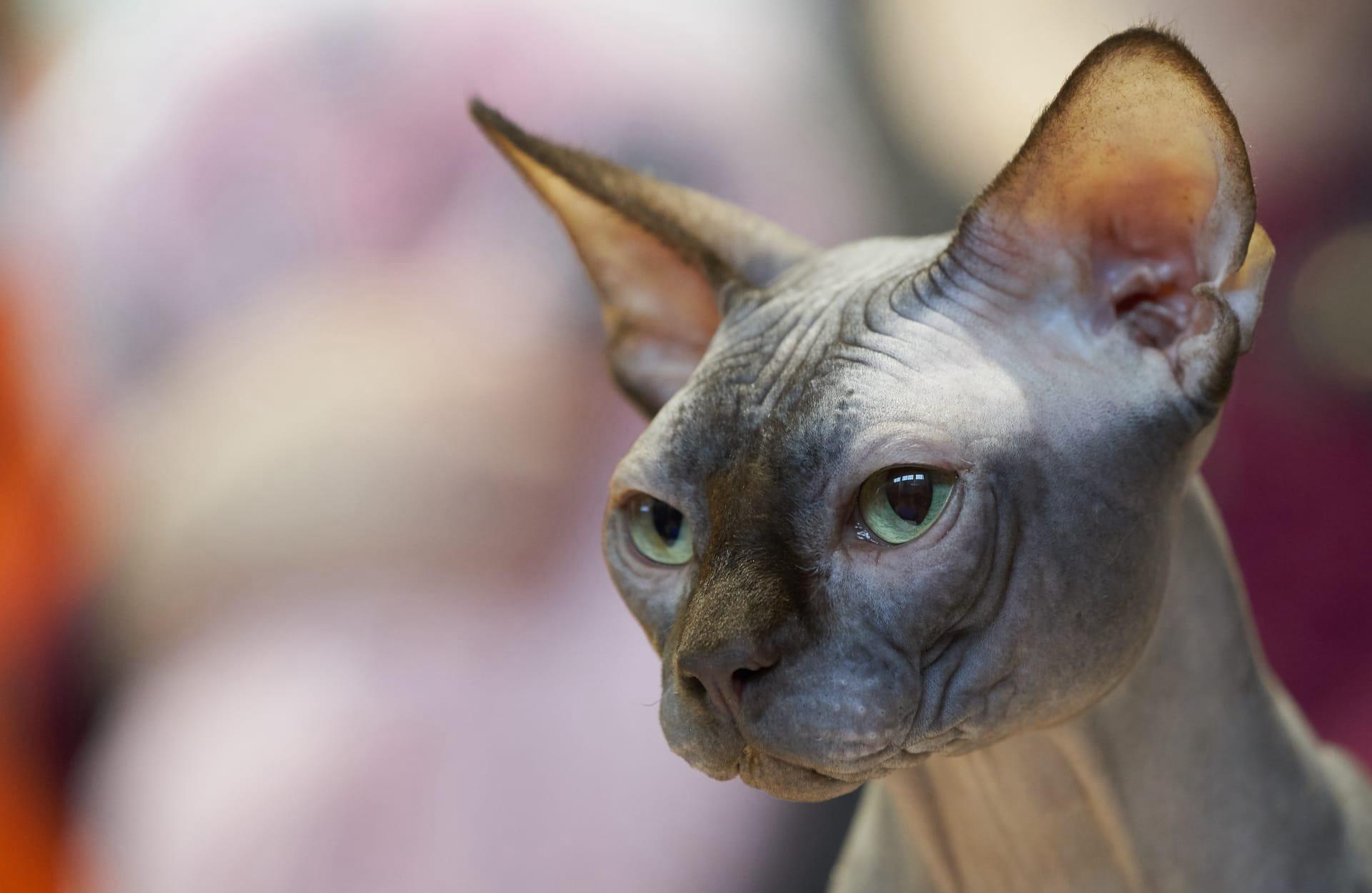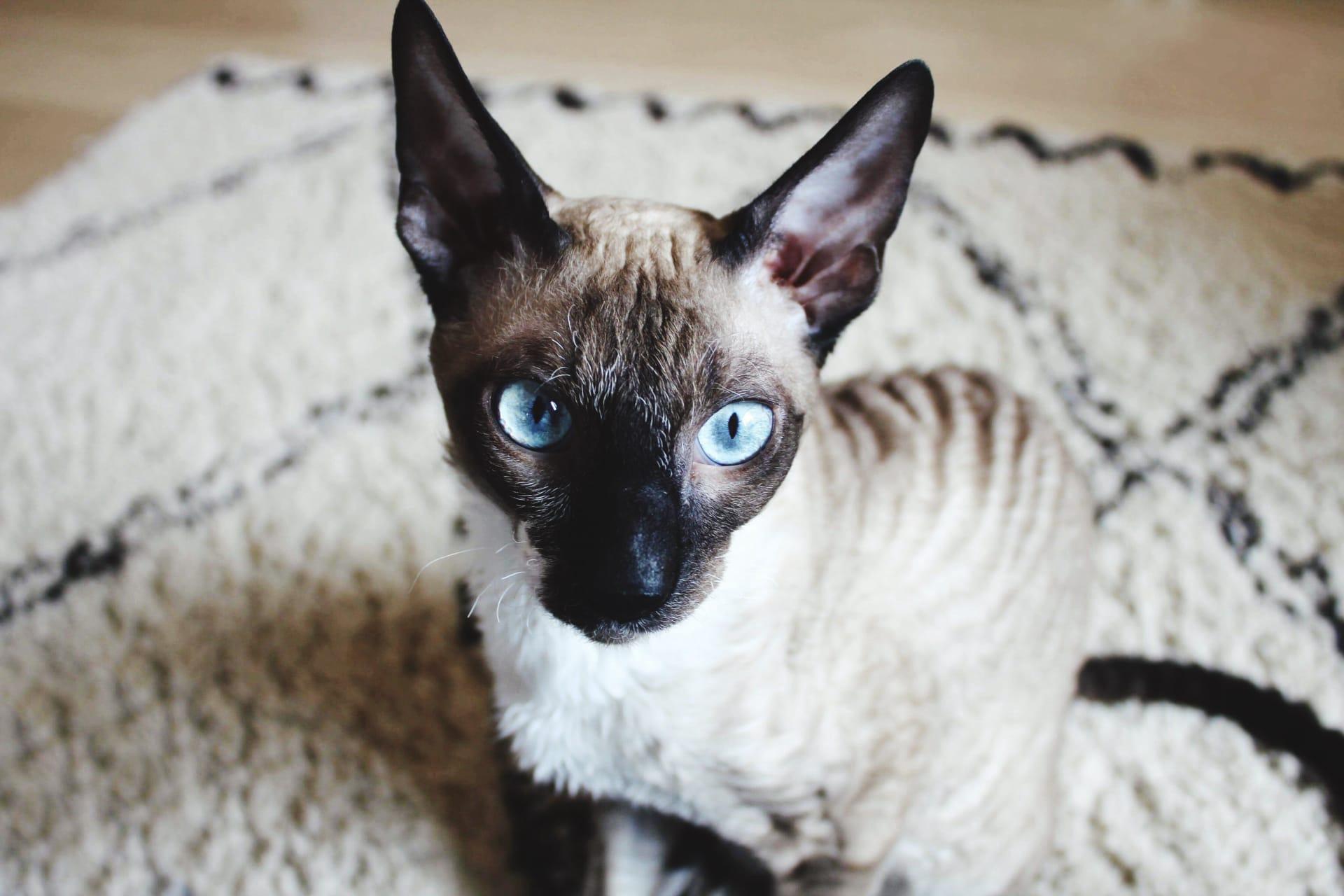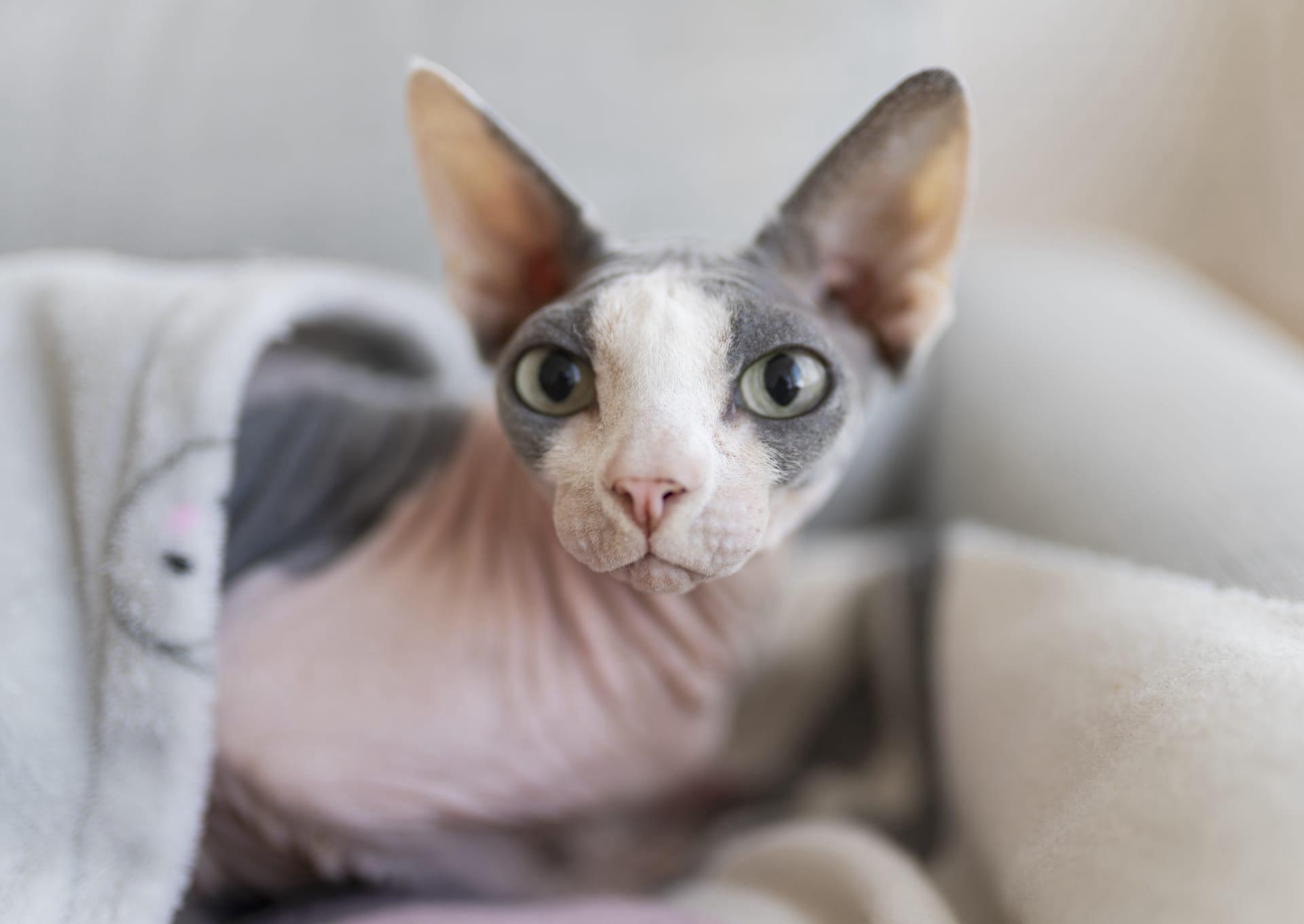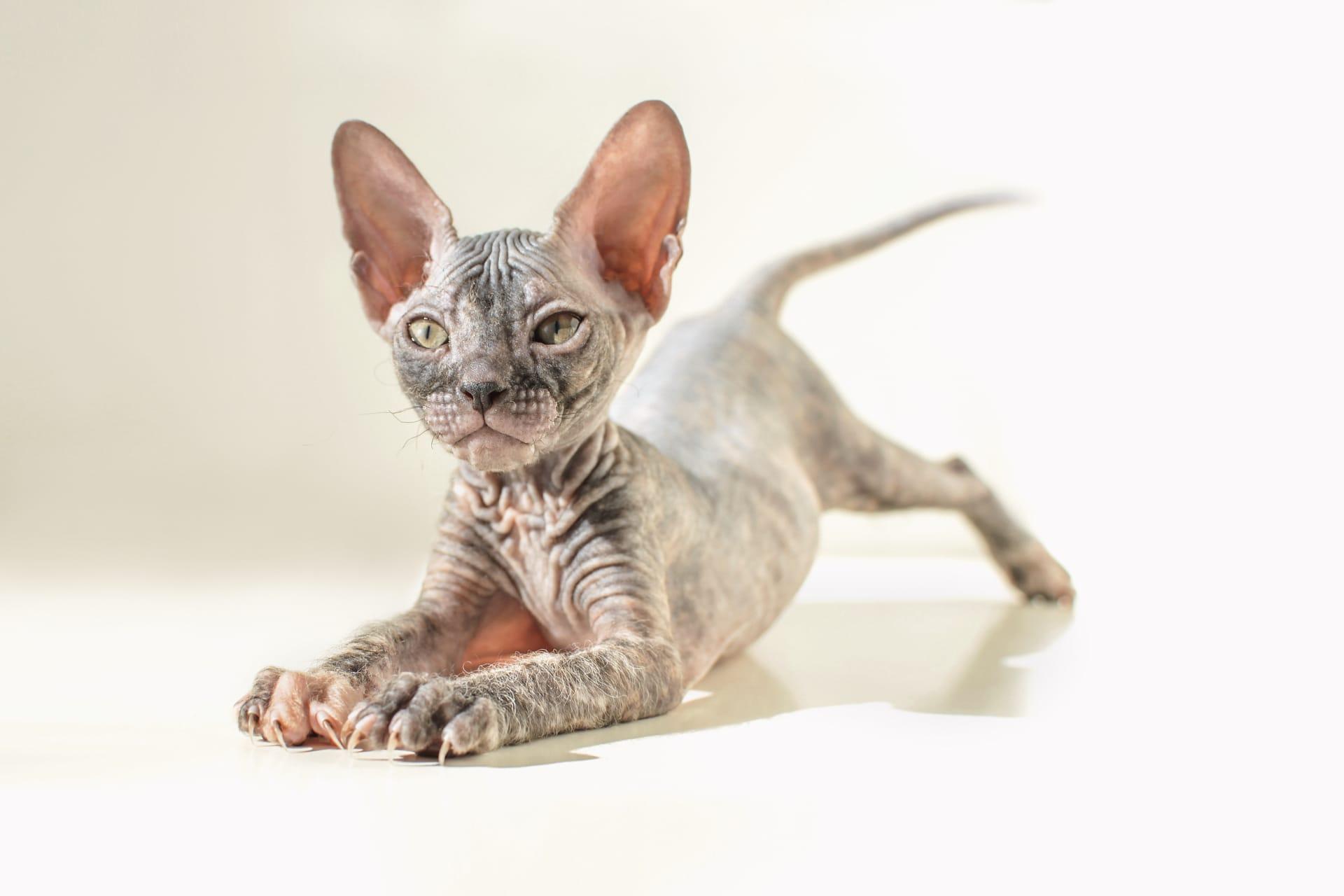Cornish Rex Cat Trivia
- Home /
- Trivia Question /
- Animal /
- Cornish Rex Cat Trivia
1
Question: What unique feature defines the coat of a Cornish Rex cat, and how does it differ from other cat breeds?
Answer: The Cornish Rex is distinguished by its remarkably soft, fine, and curly coat, a result of a natural mutation that affects the hair follicles, causing only the undercoat to grow. This breed lacks the outer layer of hair (guard hairs) that most cats have, which makes their coat incredibly soft to the touch. Unlike other breeds, their fur can appear wavy or even resemble lamb’s wool, and it comes in a wide range of colors and patterns.
Question: How did the Cornish Rex breed originate, and where does its name come from?
Answer: The Cornish Rex breed originated in Cornwall, England, in the 1950s from a genetic mutation among a litter of kittens born to a barn cat. One kitten exhibited an unusual, fine, curly coat, distinct from his siblings. This kitten, named Kallibunker, was the foundation of the Cornish Rex breed. The "Rex" in its name refers to the rex gene responsible for its unique fur texture, a term borrowed from the Rex rabbit, known for its similarly soft, curly coat.

2
Question: Is it true that Cornish Rex cats are hypoallergenic and a good choice for people with cat allergies?
Answer: While no cat breed is completely hypoallergenic, the Cornish Rex is often considered more suitable for allergy sufferers than many other breeds. This is due to their short, fine coat that sheds less fur and dander than cats with longer hair or a double coat. However, it's important for potential owners with allergies to spend time with the breed before adopting, as individual reactions can vary.
Question: Do Cornish Rex cats require less grooming due to their unique coat?
Answer: Contrary to what one might expect, Cornish Rex cats do require regular grooming to maintain their coat’s condition. Their curly fur can become tangled if not carefully managed, and because they lack an outer coat, they are prone to oil buildup on their skin. Regular bathing, as often as once a week, is recommended to keep their coat clean and healthy. Despite their grooming needs, their fur does not shed much, making maintenance somewhat easier than with other breeds.

3
Question: How active and social are Cornish Rex cats compared to other cat breeds?
Answer: Cornish Rex cats are known for their exceptionally high energy levels and sociable nature. They are highly playful, love to interact with their human companions, and remain kitten-like in their playfulness well into adulthood. These cats are often described as "dog-like" due to their tendency to follow their owners around and their ability to learn tricks or play fetch. Their social nature makes them great companions but also means they do not like being left alone for long periods.
Question: What is the lifespan of a Cornish Rex cat, and are there specific health concerns to be aware of?
Answer: Cornish Rex cats typically live between 11 to 15 years, a lifespan comparable to many other domestic cat breeds. They are generally healthy, but like all breeds, they can be predisposed to certain genetic health issues. These may include hypertrophic cardiomyopathy, a form of heart disease, and patellar luxation, a condition affecting the kneecap. Regular veterinary check-ups and a healthy diet are crucial for maintaining their health.

4
Question: Can Cornish Rex cats go outside, or are they strictly indoor pets?
Answer: While Cornish Rex cats can enjoy supervised outdoor activities, it is generally recommended to keep them as indoor pets. Their fine coat provides little protection against harsh weather, and they can be prone to sunburn due to their lack of guard hairs. If they do go outside, it should be in a safe, enclosed area or on a leash. Indoor living protects them from common outdoor hazards and helps ensure they live a long, healthy life.
Question: Are Cornish Rex cats good with children and other pets?
Answer: Yes, Cornish Rex cats are typically very good with children and other pets, including dogs. Their playful and affectionate nature makes them excellent family pets. They are known for their patience and tolerance, but as with any pet introduction, it should be done gradually and under supervision. Their social nature means they often appreciate the companionship of another cat or dog, especially if their human family is not home during the day.

5
Question: What dietary considerations should be taken into account for Cornish Rex cats?
Answer: Cornish Rex cats do not have specific dietary needs different from other cat breeds, but they do benefit from a high-quality, protein-rich diet. Given their high energy levels, it's important to provide them with enough nutrients to match their activity. Always ensure fresh water is available, and consider incorporating both dry and wet food to promote hydration and kidney health.
Question: How can one tell if a Cornish Rex cat is happy and healthy?
Answer: A happy and healthy Cornish Rex cat will display a good appetite, have a glossy and clean coat (even if it's curly), show curiosity and playfulness, and enjoy interacting with its human companions. Regular vet visits are essential to monitor their health, and any sudden changes in behavior or appearance should be addressed promptly. Watching for these signs will help ensure your Cornish Rex remains a joyful and vibrant part of your family.